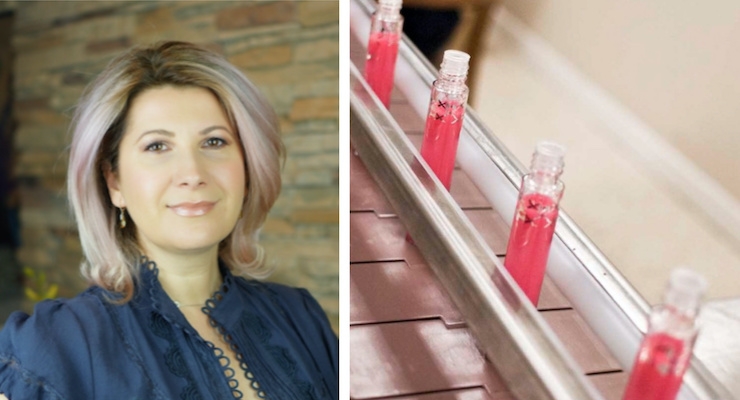Daniela Ciocan, Founder, Unfiltered Experience05.01.20
I’ve had the privilege of running one of the largest beauty events in the U.S. and have worked with hundreds of Indies and startups which to this day I have a good deal of interactions with. We’ve seen the meteoric rise of Indie brands such as It Cosmetics, Drunk Elephant, FAB Skincare, TATCHA and Briogeo Haircare— just to name a few who within the span of a few years reached fandom in the millions.
The potential to partner and grow with startup companies is alluring yet the economics can be challenging to suppliers. For U.S.—based suppliers, the Indie market represents a great opportunity, yet one that’s laden with risk factors.
Photo above right, screenshot via Seacliff Beauty/Turnkey
Small starting orders may be followed by steep quantity increases with a tight delivery time, causing stress on the vendor/client relationship. Indies can scale up fast, have no way of accurately predicting inventory needs, generally have cash flow issues and little staff to communicate with throughout the manufacturing process and don’t know what to ask.
Furthermore, most Indie founders come to the product development process with little to no know-how of what to ask for or look for—or how to avoid costly mistakes.
Why Indies Should Consider a U.S.-Based Supplier
Indies would be wise to consider as their first step a U.S.-based supplier for several reasons, including:
- Coordinating from Abroad: The prospect of finding a reliable trustworthy supplier from abroad -- coupled with the communication challenges stemming from the time difference, language barriers and ‘lost in translation’ moments. I know entrepreneurs who fly out to China to be next to the production line as products are made, in order to see and flag mistakes right away before the full production is run.
- Shipping: Then there’s the shipping to consider, including sample shipping during the development process. Shipping internationally is a challenge due to numerous reasons including fast-to-market launches, the unknown cost and timing of freight delivery, custom clearance costs and now potentially added tariff costs.
- Production & Development Challenges: Lastly, start-ups and Indie companies don’t have the leadership and executive know-how to allow them to avoid costly mistakes and create efficient inventory management models and supplier pipeline management. We’ve all heard different versions of how components sourced from multiple suppliers end up mismatched or the color or finish is off. One Indie company I’ve chatted with recently in a rush to meet a set-in-stone launch deadline received makeup sponges that didn’t fit in the makeup compact compartment.
Turnkey services are currently coveted by Indie companies as it allows them to work with one supplier who will be able to handle all the development processes. Another appealing factor is that Indies are lean operations and there’s little internal support structure to coordinate with several suppliers.
Many in the supplier community have heard this message loud and clear and are able to provide enticing all-in-one services including companies such as HCT, Wasach Labs, Seacliff and many others.
When going this route, key questions one should ask are:
- Understand what the core expertise of that supplier is: Is it creating a package, branding or formula?
- Ask what methodology is used for evaluating design direction for packaging and branding purposes.
- Find out how deep the company will go into the process (formula customization, FDA requirements, testing, etc).
Key Takeaways
- Suppliers: Understand the challenges of working with Indies, and consider if your business model suits this type of client.
- Indie Manufacturers: Know what to ask and what will put less stress on your organization and prepare you for the unexpected sales bumps.
About the Author
Daniela Ciocan is Founder, Unfiltered Experience.
Email Daniela Ciocan. Follow on Instagram at @danielamciocan.
Read More By This Author
Crowdsourcing Influencers— The ‘Insta’ Factor: Attracting influencers at the development process can keep them engaged with your brand.













